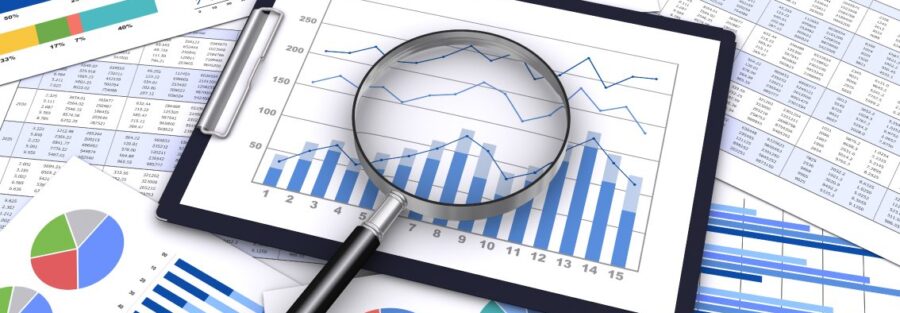Big data is not just a buzzword or an inconsequential fad. It has overtaken oil as the world’s most valuable resource — and it’s everywhere. By 2020, every human being on the planet will generate an estimated 1.7 megabytes of new information per second. For businesses looking to thrive in today’s data-driven landscape, the question is not only how to capture and store this information, but how to convert it into real-world results.
The answer lies in data analytics. By definition, big data refers to immense volumes of raw, unprocessed data. Data analytics is the process of turning this raw data into useful insights — usually by applying an algorithm in order to identify meaningful correlations between different data sets.
By the end of 2017, over 50% of businesses had adopted data analysis strategies, a figure that will only continue to rise. For businesses in Africa especially, big data represents a huge opportunity for growth.
Data Analytics in Africa
Traditionally, data collection in Africa has been something of a challenge; at present, Africa generates less than 1% of the world’s research data. However, times are changing. The mobile market is positively booming — there’ll be an additional 300 million smartphones in Sub-Saharan Africa in the next 3 years alone — which means greater connectivity, and thus improved access to data.
African enterprises must be ready to leverage this data. Indeed, Africa already has many big data success stories to its name, such as M-KOPA Solar, a startup which helps paraffin users in rural East Africa to swap fossil fuels for solar energy. Using the IoT and cloud technology, they are able to generate meaningful data and manage solar panel devices across 500,000 homes. Likewise, Kenyan-based company M-Farm uses big data to provide local farmers with crucial weather updates and current crop prices — empowering them to manage their farms more effectively and increase their yields.
Benefits of Data Analytics
These are just a few examples. If handled correctly, big data analytics has the power to transform almost any business in any industry. Here are just some of the ways in which African enterprises stand to benefit from data analytics:
1. Gain a better understanding of the market
Data analytics turns meaningless information into recognizable patterns, helping to paint an overall picture of the industry. As this picture becomes more detailed over time, businesses are able to fully understand the market in which they’re operating — and thus make informed, strategic decisions.
2. Identify trends ahead of time
Identifying patterns and correlations between different data sets enables businesses to spot and anticipate both current and emerging trends, which is critical to retaining a competitive edge.
3. Maximize customer value
Big data offers an unprecedented opportunity to understand the consumer and their purchasing behaviours. With the help of analytics, African businesses can establish exactly what their customers want, and develop their products and services accordingly.
4. Boost efficiency
The insights provided by data analytics are key to identifying what works and what doesn’t. Businesses can use this information to channel their efforts in the most profitable areas, increasing internal efficiency and driving profits.
5. Reduce costs
Increased efficiency ultimately means cutting down on unnecessary costs. At the same time, data analytics software presents a cost-effective way of storing and managing the huge volumes of data that businesses are inundated with on a daily basis.
Leveraging Big Data in Africa for Business Success
Making the most of big data requires a careful analytics strategy. Every business has its own unique needs and objectives; what drives results for one may be completely futile for another. Finding the right solution is therefore key, and technology plays a crucial role. Especially African businesses face different challenges and therefore need their own customized solutions.
With a platform like RasXP by Rasello, businesses can tailor-make their own data analysis solutions — ensuring utmost relevance and meaningful output. With access to a whole host of customizable features, businesses can capture and analyze the most critical information, convert it into easily comprehensible visual representations, and use it to make well-informed decisions. Of course, human input is also indispensable. While technology simplifies the mammoth task of storing and processing data, only a well-trained human eye can see if these outputs make sense for the business.
In the wake of increased connectivity and easier access to data, African businesses have huge potential at their fingertips — and those who are first to adopt big data will ultimately secure a huge competitive advantage.

